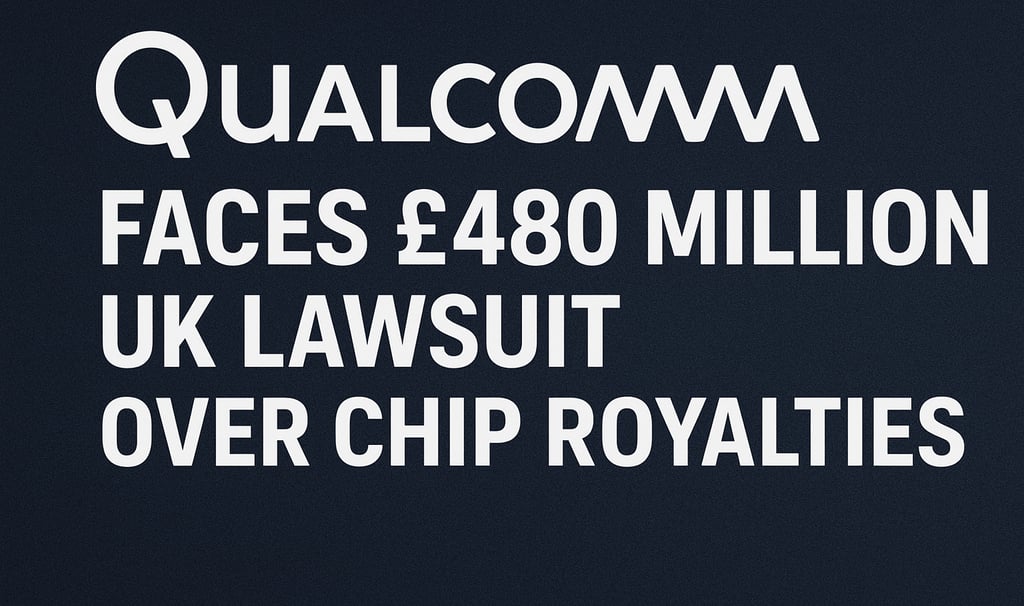Qualcomm Faces £480 Million UK Lawsuit Over Chip Royalties — Global Tech Industry on Edge
Qualcomm faces a £480M UK lawsuit over chip licensing practices. Case could reshape smartphone pricing and global semiconductor policies.
Raja Awais Ali
10/6/20252 min read


Qualcomm Faces £480 Million UK Lawsuit Over Smartphone Chip Licensing Practices
London, October 6, 2025 — U.S. chipmaking giant Qualcomm is facing a major £480 million ($647 million) lawsuit in the United Kingdom, filed by consumer rights group Which? The claim accuses Qualcomm of abusing its market dominance through unfair licensing practices that allegedly inflated smartphone prices for millions of users.
According to the lawsuit, Qualcomm’s controversial “No License, No Chip” policy forced smartphone manufacturers — including Apple and Samsung — to pay for patent licenses even on devices that didn’t use Qualcomm chips. The group argues that this created an artificial “private tax” across the smartphone industry, ultimately driving up retail prices for consumers.
Legal filings in the UK Competition Appeal Tribunal allege that Qualcomm leveraged its monopoly position to restrict competition and charge excessive royalties. Which? claims these tactics breached both UK and EU competition laws, costing British consumers hundreds of millions of pounds.
Qualcomm, however, denies any wrongdoing. The company insists that its licensing model follows global standards for Standard Essential Patents (SEPs) — technologies crucial for mobile communications. Qualcomm’s legal representatives told the court that the “No License, No Chip” policy ensures respect for intellectual property rights and maintains fair market transparency.
The tribunal’s initial phase will determine whether Qualcomm violated competition laws. If found liable, the court will then decide compensation for affected consumers. The hearings are expected to continue for five weeks.
This isn’t the first time Qualcomm has faced scrutiny over its business model. In 2023, a U.S. court in California dismissed a similar case in the company’s favor. However, the British case could have wider global implications, potentially reshaping how chipmakers handle royalties and licensing deals.
Following the announcement, Qualcomm’s stock saw minor fluctuations as investors weighed potential financial and regulatory risks. Analysts warn that an unfavorable ruling could trigger similar lawsuits in other countries and pressure the entire semiconductor industry to adopt more transparent licensing practices.
Industry experts believe this case represents a critical moment for tech regulation — a test of how far companies can go in monetizing innovation without crossing antitrust boundaries. The verdict could redefine how innovation, competition, and consumer rights coexist in the global chip market.
In essence, the Qualcomm lawsuit underscores the ongoing tension between protecting intellectual property and preventing monopolistic abuse. Its outcome could set a major precedent for the future of the semiconductor ecosystem.
Stay informed with the latest national and international news.
© 2025. All rights reserved.